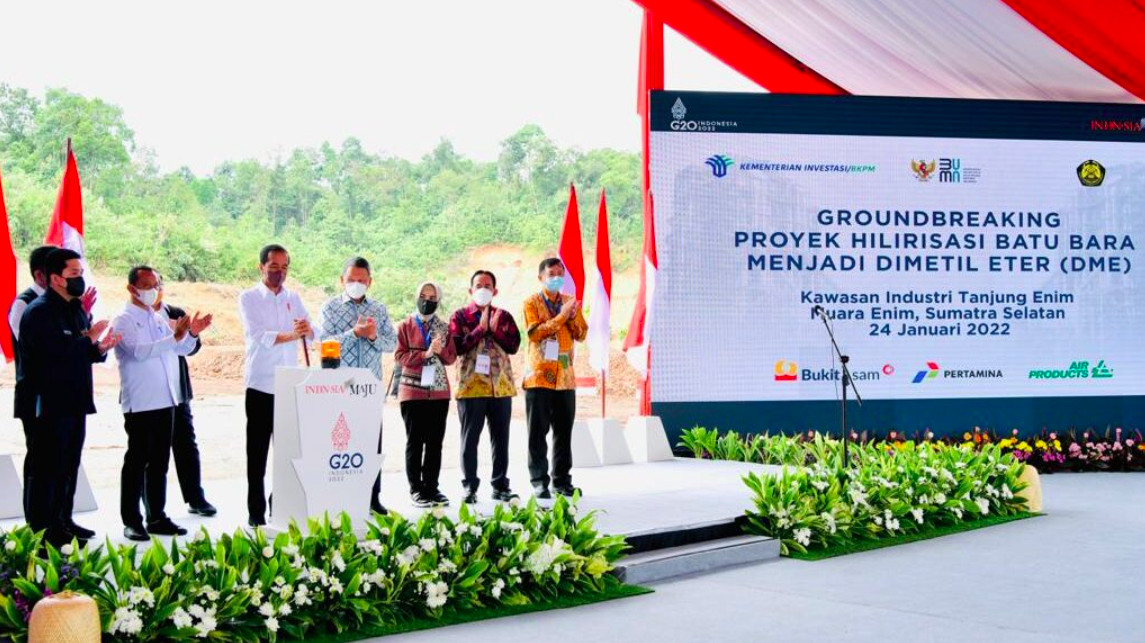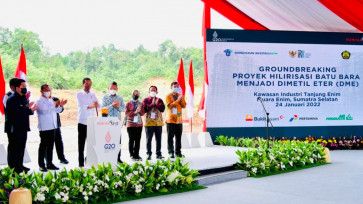Popular Reads
Top Results
Can't find what you're looking for?
View all search resultsPopular Reads
Top Results
Can't find what you're looking for?
View all search resultsIndonesia's climate actions should follow science, not politics
The government has been creating mixed signals by aiming to promote clean and renewable energy but, at the same time, seeking to continue the use of coal energy as long as possible.
Change text size
Gift Premium Articles
to Anyone
T
he climate crisis has become a scourge and will lead to a climate catastrophe as temperatures increase. People's fear of the climate crisis has been emphasized by a newly launched report by the World Economic Forum, titled Global Risks Perception Survey 2023, as "natural disaster and extreme weather events" and "failure to mitigate the climate crisis" are ranked among the top-five severe global risks over the next two years.
Moreover, climate-mitigation failure is ranked as the most severe risk over the next decade, followed by “failure of climate change adaptation”, “natural disasters and extreme weather events” and “biodiversity loss and ecosystem collapse”. In short, four out of the top-five global risks in the next decade are linked to climate and environmental issues.
These survey findings align with the newest Intergovernmental Panel on Climate Change (IPCC) AR6 Synthesis Report, which again determines that countries' climate actions are too slow as the Earth's temperature has risen by 1.1 degrees Celsius. It is heading toward an average global temperature increase of 2.8 degrees by 2100 based on Nationally Determined Contributions (NDCs), which will bring about global catastrophe, not only to the climate itself, but also to human beings and their welfare.
This figure is almost twice the target of 1.5 degrees stated in the Paris Agreement, which is the “safe” limit for global warming on the Earth. Governments' political commitments to addressing the climate crisis so far have been weak, as if the repeated warnings from the IPCC reports do not affect them.
Indonesia, which ranks fifth on the list of seven countries with the largest emissions in 2020 by the United Nations Environment Program (UNEP), announced its enhanced NDC with an increasing greenhouse gas (GHG) emission reduction target just before the 27th United Natgions climate conference (COP27). However, Indonesia's climate commitment is still considered insufficient and will lead to a temperature increase of up to four degrees, which is far from the target of the Paris Agreement.
As the only Southeast Asia country that made the list of the most significant GHG emitters, Indonesia is also among the countries that are highly vulnerable to climate risks, especially flooding and extreme heat.
According to the National Disaster Mitigation Agency (BNPB), Indonesia experienced 3,544 disasters in 2022, of which more than 90 percent were hydro-meteorological ones, with the majority being caused by rain and extreme weather. The frequency of hydro-meteorological disasters in Indonesia has increased over the past 40 years and has resulted in more than Rp 100 trillion (US$6.6 billion) in economic losses per year due to extreme weather, as calculated by Bank Indonesia. It is also projected that the potential economic losses due to the climate crisis will amount to 40 percent of Indonesia's gross domestic product in 2050.



















